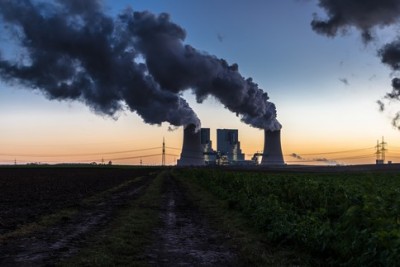Reducing the fossil fuel exposure of your share portfolio is now as easy as 1-2-3

By Dr Anthony Horton
Three new climate change indices – the Carbon Efficient Index Series, the Carbon Efficient Select Index Series and the Fossil Fuel Free Index Series – have been created by S+P Dow Jones to highlight the roles public companies play and ultimately to assist investors to lower their fossil fuel exposure.
The Carbon Efficient Index Series is designed to measure the performance of S+P Global 1200 stocks which cover 31 countries and approximately 70% of the world’s total stock market capitalisation in a range of sectors including energy, consumer goods/services, healthcare, financials and telecommunications.
The Carbon Efficient Index Series weights companies with lower carbon emissions higher than those with higher carbon emissions. The Carbon Efficient Select Index Series measures the performance of companies in the S+P 1200 that have a smaller carbon footprint than their peers who are essentially excluded. Lastly, the Fossil Fuel Free Index Series measures the performance of companies that don’t own fossil fuel reserves or don’t use fossil fuels either through an external party or to generate their power.
The annual greenhouse gas emissions for the Carbon Efficient and Select Index Series are calculated by Trucost, a consultancy that assists organisations to measure and manage the environmental risks associated with their operations. Head of Environmental Finance Neil McIndoe explained Trucost’s role as providing data to create new indices which offer lower carbon exposure while benchmarking financial performance.
Head of Sustainability indices at S+P Dow Jones Indices Julia Kochetygova commented that investors are financing renewable energy projects in an attempt to facilitate the global transition to a low carbon economy and to avoid high emission companies or minimise their exposure to fossil fuel companies. In addition, the three new S+P Dow Jones Indices should provide alternative performance benchmarks and highlight those companies that meet the strict fossil fuel and carbon efficient standards that are set within each index series, according to Kochetygova.
It is becoming more difficult for Governments and corporations alike to ignore climate change or to refuse to act on it when their respective counterparts are doing so and making significant political and economic gains as a result. Currently, there is significant momentum for collaboration between Governments and corporate organisations with respect to acting on climate change and the momentum is seemingly growing on a daily basis, as can be seen by observing social media platforms.
Divestment is one action that is receiving very significant attention around the world and is an action that both Governments and corporations are undertaking to reduce their investment exposure to fossil fuels. Social media visibility for divestment provides instant publicity for Governments and corporations (and their staff/shareholders).
It is understandable that such publicity from the retweets/shares/likes etc will prompt constituents of Governments and/or the staff/customers of corporations that don’t act on climate change (and its inherent risk profile) to question why they aren’t and to apply pressure to change it, particularly if, in the case of corporations, the bottom line will be impacted. In this situation, staff and shareholders rightly demand answers and accountability for any decisions made.
The creation of these three indices demonstrates the extent to which markets have embraced the de-risking opportunities that climate change presents for investors and corporations (from a corporate social responsibility perspective) alike. Rather than ignoring climate change, or pretending it neither exists or matters, these indices fundamentally shifts the “why” and “where” of investment and also provide investors with clear line of sight as to how the companies they invest in are performing on the basis of true and valid “like for like” comparisons. It also places the environment (or more precisely climate change) at the centre of the comparison rather than climate change being one of many factors in that comparison.
It is only natural that people want the monies they work for to work hard for them in return without exposing them to undue risk. Ultimately, such indices are powerful tools that will assist investors to create the momentum necessary for the facilitation of a low carbon economy. Reluctant or resistant Governments or corporations are therefore left with little choice but to act.
This article was originally published on The Climate Change Guy.
 About the author: Anthony Horton holds a PhD in Environmental Science, a Bachelor of Environmental Science with Honours and a Diploma of Carbon Management. He has a track record of delivering customised solutions in Academia, Government, the Mining Industry and Consulting based on the latest wisdom and his scientific background and experience in Climate/Atmospheric Science and Air Quality. Anthony’s work has been published in internationally recognised scientific journals and presented at international and national conferences, and he is currently on the Editorial Board of the Journal Nature Environment and Pollution Technology. Anthony also blogs on his own site, The Climate Change Guy.
About the author: Anthony Horton holds a PhD in Environmental Science, a Bachelor of Environmental Science with Honours and a Diploma of Carbon Management. He has a track record of delivering customised solutions in Academia, Government, the Mining Industry and Consulting based on the latest wisdom and his scientific background and experience in Climate/Atmospheric Science and Air Quality. Anthony’s work has been published in internationally recognised scientific journals and presented at international and national conferences, and he is currently on the Editorial Board of the Journal Nature Environment and Pollution Technology. Anthony also blogs on his own site, The Climate Change Guy.
Like what we do at The AIMN?
You’ll like it even more knowing that your donation will help us to keep up the good fight.
Chuck in a few bucks and see just how far it goes!
Your contribution to help with the running costs of this site will be gratefully accepted.
You can donate through PayPal or credit card via the button below, or donate via bank transfer: BSB: 062500; A/c no: 10495969










2 comments
Login here Register here-
JohnB -
Jexpat
Return to home pageWould be great if this ‘Carbon Efficient Index Series’ share-market rating system could flow onto the retail outlet businesses of such listed companies.
The concerned consumer would then have a guide as to where best to spend their money for maximum carbon amelioration effect.
Well, if investors want to buck the trend, this is what they can expect:
Massachusetts’ public pension fund lost more than half a billion dollars due to fossil fuel investments during the fiscal year that ended in June, according to new data analysis released Monday from Trillium Group.
The Massachusetts Pension Reserves Investment Trust Fund’s fossil fuel investments, including in coal, oil and gas, and production and exploration companies, lost 28 percent of their value — $521 million — the analysts found, using public records. The pension fund has been under scrutiny for its investments recently, and there are companion bills in the Massachusetts Senate and state House that would force the public fund to divest from all fossil fuels. There are a lot of challenges for the [fossil fuel] industry, and big picture, they don’t look like short-term challenges to me
“I think sometimes divestment is assumed to be a financial mistake,” Will Lana, a partner at Trillium Asset Management, told ThinkProgress. “It’s important to stop for a moment and say, well, it hasn’t been a mistake [lately].”
http://thinkprogress.org/climate/2015/09/22/3703882/massachusetts-pension-plan-lost-521-million-in-fossil-fuel-investments/